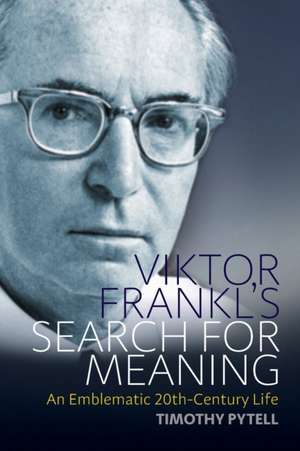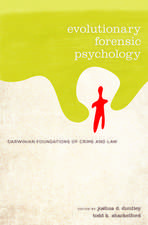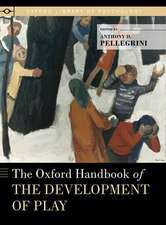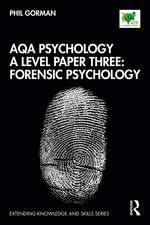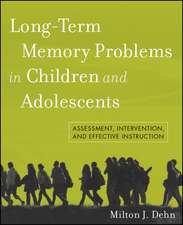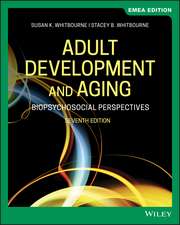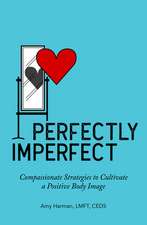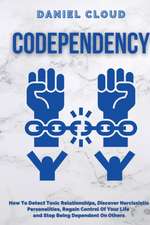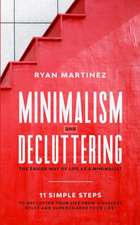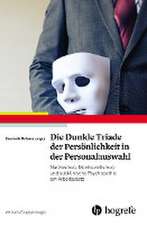Viktor Frankl's Search for Meaning: Making Sense of History
Autor Timothy Pytellen Limba Engleză Paperback – 29 feb 2020
First published in 1946, Viktor Frankl's memoir Man's Search for Meaning remains one of the most influential books of the last century, selling over ten million copies worldwide and having been embraced by successive generations of readers captivated by its author's philosophical journey in the wake of the Holocaust. This long-overdue reappraisal examines Frankl's life and intellectual evolution anew, from his early immersion in Freudian and Adlerian theory to his development of the "third Viennese school" amid the National Socialist domination of professional psychotherapy. It teases out the fascinating contradictions and ambiguities surrounding his years in Nazi Europe, including the experimental medical procedures he oversaw in occupied Austria and a stopover at the Auschwitz concentration camp far briefer than has commonly been assumed. Throughout, author Timothy Pytell gives a penetrating but fair-minded account of a man whose paradoxical embodiment of asceticism, celebrity, tradition, and self-reinvention drew together the complex strands of twentieth-century intellectual life.
Din seria Making Sense of History
- 14%
 Preț: 690.76 lei
Preț: 690.76 lei -
 Preț: 120.20 lei
Preț: 120.20 lei -
 Preț: 257.44 lei
Preț: 257.44 lei -
 Preț: 261.93 lei
Preț: 261.93 lei -
 Preț: 221.95 lei
Preț: 221.95 lei -
 Preț: 260.15 lei
Preț: 260.15 lei -
 Preț: 257.13 lei
Preț: 257.13 lei - 23%
 Preț: 750.53 lei
Preț: 750.53 lei - 23%
 Preț: 747.99 lei
Preț: 747.99 lei - 23%
 Preț: 835.18 lei
Preț: 835.18 lei - 23%
 Preț: 837.24 lei
Preț: 837.24 lei - 23%
 Preț: 753.30 lei
Preț: 753.30 lei -
 Preț: 155.41 lei
Preț: 155.41 lei - 23%
 Preț: 747.39 lei
Preț: 747.39 lei -
 Preț: 263.29 lei
Preț: 263.29 lei -
 Preț: 260.48 lei
Preț: 260.48 lei - 23%
 Preț: 806.56 lei
Preț: 806.56 lei -
 Preț: 259.31 lei
Preț: 259.31 lei -
 Preț: 303.59 lei
Preț: 303.59 lei -
 Preț: 257.89 lei
Preț: 257.89 lei - 23%
 Preț: 748.10 lei
Preț: 748.10 lei -
 Preț: 257.69 lei
Preț: 257.69 lei - 23%
 Preț: 749.61 lei
Preț: 749.61 lei -
 Preț: 265.59 lei
Preț: 265.59 lei - 23%
 Preț: 750.20 lei
Preț: 750.20 lei -
 Preț: 259.64 lei
Preț: 259.64 lei - 23%
 Preț: 807.73 lei
Preț: 807.73 lei - 23%
 Preț: 748.57 lei
Preț: 748.57 lei - 23%
 Preț: 746.94 lei
Preț: 746.94 lei - 23%
 Preț: 806.85 lei
Preț: 806.85 lei -
 Preț: 264.05 lei
Preț: 264.05 lei - 23%
 Preț: 748.86 lei
Preț: 748.86 lei - 23%
 Preț: 749.02 lei
Preț: 749.02 lei -
 Preț: 259.42 lei
Preț: 259.42 lei -
 Preț: 261.56 lei
Preț: 261.56 lei -
 Preț: 261.67 lei
Preț: 261.67 lei - 23%
 Preț: 749.77 lei
Preț: 749.77 lei - 23%
 Preț: 745.33 lei
Preț: 745.33 lei - 23%
 Preț: 748.27 lei
Preț: 748.27 lei
Preț: 151.67 lei
Nou
29.03€ • 30.19$ • 24.29£
Carte disponibilă
Livrare economică 22 februarie-08 martie
Specificații
ISBN-10: 1789208076
Pagini: 218
Dimensiuni: 152 x 229 x 13 mm
Greutate: 0.3 kg
Editura: BERGHAHN BOOKS
Seria Making Sense of History
Descriere
First published in 1946, Viktor Frankl's memoir Man's Search for Meaning remains one of the most influential books of the last century, selling over ten million copies worldwide and having been embraced by successive generations of readers captivated by its author's philosophical journey in the wake of the Holocaust. This long-overdue reappraisal examines Frankl's life and intellectual evolution anew, from his early immersion in Freudian and Adlerian theory to his development of the "third Viennese school" amid the National Socialist domination of professional psychotherapy. It teases out the fascinating contradictions and ambiguities surrounding his years in Nazi Europe, including the experimental medical procedures he oversaw in occupied Austria and a stopover at the Auschwitz concentration camp far briefer than has commonly been assumed. Throughout, author Timothy Pytell gives a penetrating but fair-minded account of a man whose paradoxical embodiment of asceticism, celebrity, tradition, and self-reinvention drew together the complex strands of twentieth-century intellectual life.
